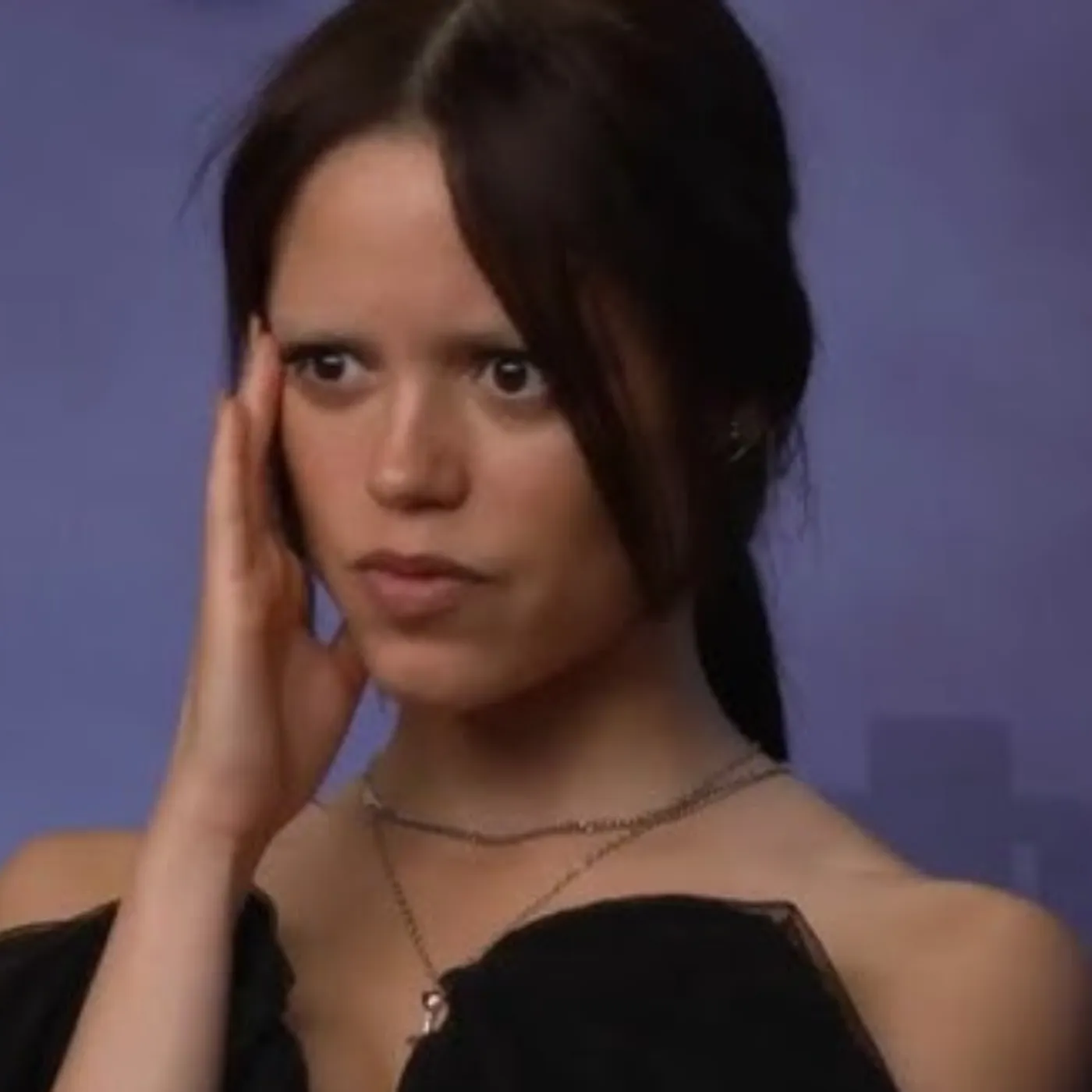

“I Don’t Like It” — Jenna Ortega Speaks Bluntly About Wednesday Addams
When Jenna Ortega stepped into the shoes of Wednesday Addams for the Netflix series Wednesday in 2022, few could have predicted the cultural phenomenon it would become. The show quickly climbed global charts, making Ortega one of the most recognized faces in Hollywood. Her deadpan delivery, gothic charm, and unique dance sequence turned her into an instant icon.
But as the spotlight grew brighter, Ortega began facing an unexpected challenge: people expecting her to live as Wednesday outside of the screen. In a recent interview, she admitted openly, “I don’t like it”, referring to the heavy pressure of constantly being tied to the fictional persona in her real life.
The Fine Line Between Character and Self
For Ortega, Wednesday’s character is a role—a masterfully played role, but a role nonetheless. Yet fans, media, and even industry insiders have blurred the boundaries between the actress and her character.

“Sometimes I walk into an event or an interview, and it feels like everyone expects me to be Wednesday—stoic, sarcastic, and emotionless. That’s not me. I’m an actress. I love Wednesday, but I don’t want to live her life off-screen.”
This revelation has surprised fans, many of whom celebrated her perfect embodiment of the Addams Family icon. Yet her words highlight a deeper issue: the overwhelming weight of typecasting in Hollywood.
Jenna Ortega and the Shadow of Wednesday
It’s no exaggeration to say that Wednesday Addams became the role that defined Ortega’s career. The series earned her a Golden Globe nomination and praise from critics for elevating a beloved character into a new era. The viral dance scene alone became a pop culture moment, replicated by millions on TikTok and Instagram.
But as Ortega herself noted, success comes with its downsides. The constant association with Wednesday has overshadowed her other work, from her performance in Scream (2022) to more dramatic roles she took earlier in her career.
“It sometimes feels like everything I do now is compared to Wednesday,” Ortega admitted. “If I smile too much in public, people say I’m not acting like her. If I wear bright colors, it’s questioned. That’s not fair to me as a person.”
Hollywood’s Typecasting Trap
What Ortega is experiencing is hardly new. Many actors who bring beloved characters to life often find themselves trapped under the weight of those roles. From Daniel Radcliffe with Harry Potter to Robert Pattinson with Twilight, history shows how challenging it can be to move past cultural phenomena.
For Ortega, who is still in her early 20s, the pressure is particularly intense. Hollywood has a long history of typecasting young actors, making it difficult for them to transition into more diverse opportunities. By publicly stating “I don’t like it”, Ortega is not only voicing her discomfort but also sending a message to the industry: she refuses to be boxed in by one role.
Fans’ Reaction to Ortega’s Honesty
When news of Ortega’s comments broke, fans took to social media to debate her stance. Some sympathized deeply, acknowledging that constantly living under the shadow of Wednesday must be exhausting. “She’s more than just one character. Let her breathe,” one fan posted on X (formerly Twitter).
Others, however, admitted they find it hard to separate Ortega from Wednesday, given how iconic her portrayal was. The viral clips, memes, and merchandise have created an almost inseparable link between actress and character.
Still, the majority of reactions leaned supportive, applauding Ortega for being candid about the realities of fame. For many young fans, her honesty made her even more relatable—an actress who speaks openly about the struggles behind the glamor.
The Struggle of Identity in the Spotlight
Being recognized for a role is a dream for many actors, but for Jenna Ortega, it also raises questions of identity. Who is she outside of Wednesday? How can she grow when the public eye constantly demands the same gothic image?
In interviews, Ortega has emphasized that she loves experimenting with roles, whether it’s horror, drama, or even lighter comedic projects. “I don’t want my career—or my personal life—to be defined by one character, no matter how beloved,” she explained.
This battle between self and persona reflects a larger truth in celebrity culture: once a role becomes iconic, it can shape an actor’s identity in ways they never intended.
A Push Toward Reinvention
Ortega’s recent projects suggest she is already taking steps to reinvent her image. From starring in independent dramas to considering more lighthearted roles, she is carving out space to showcase her versatility.
“I want to surprise people. I want to show that I can do more than just one kind of character,” Ortega has said.
This commitment mirrors the strategies of actors like Emma Stone and Zendaya, who successfully broke free from early typecasting by diversifying their roles. For Ortega, embracing variety is not just about career growth—it’s about reclaiming her identity as an artist.

Media’s Role in Shaping Expectations
The media has played a significant role in reinforcing Ortega’s Wednesday persona. Red carpet events often highlight her gothic fashion choices, interviews focus on her Addams Family role, and headlines constantly circle back to the viral dance.
While Ortega has leaned into this at times—wearing dark, vintage-inspired outfits that nod to Wednesday—she has also made it clear that fashion is just one form of expression, not an identity marker. The more the media pushes the narrative, the harder it becomes for her to separate from it.
The Bigger Conversation: Artists as People
At the heart of Ortega’s statement, “I don’t like it,” lies a reminder that actors are people, not characters. While audiences love to celebrate iconic portrayals, they often forget the individual behind the role.
For Ortega, the challenge is balancing gratitude for the role that elevated her career with the need to assert her independence as a human being. She wants fans to appreciate Wednesday without expecting her to embody that character 24/7.
What This Means for Jenna Ortega’s Future
The actress’s candidness may actually work in her favor. By drawing a clear line between herself and Wednesday, she sets the stage for more freedom in choosing roles. Producers and casting directors may recognize her determination to break molds, opening doors to unexpected opportunities.
Moreover, audiences are increasingly supportive of stars who speak openly about their struggles with fame. In an era where authenticity is valued, Ortega’s honesty makes her more relatable and respected.
Beyond the Shadow of Wednesday
Jenna Ortega’s words—“I don’t like it”—signal more than frustration; they represent a declaration of independence. While Wednesday Addams will forever remain a milestone in her career, Ortega refuses to let it define her entire identity.
As she steps into new roles and redefines her image, fans will likely see more sides of her talent and personality. The challenge now is not whether she can break free from Wednesday’s shadow—it’s how she will use her artistry to build a career that is undeniably her own.
For audiences, the message is clear: Jenna Ortega is not Wednesday Addams. She is Jenna Ortega—an actress, a creator, and above all, a person who deserves to be seen for who she truly is.


















